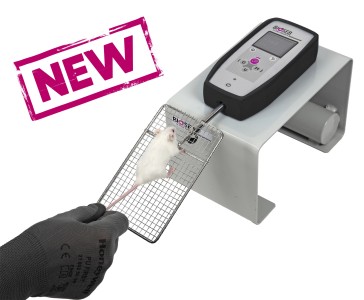Authors
M. Bojados, M. Jamon.
Lab
Aix-Marseille Université, Faculté de Médecine de la Timone, Marseille, France.
Journal
European Journal of Neurosciences
Abstract
The development of the posturo-motor control of movement is conditioned by Earth's gravity. Missing or altered gravity during the critical periods of development delays development and induces durable changes in the vestibular, cerebellar, or muscular structures, but these are not consistently mirrored at a functional level. The differences in the time schedule of vestibular and motor development could contribute to this inconstancy. To investigate the influence of gravity on the development of vestibular and locomotor functions, we analysed the performance of adult mice subjected to hypergravity during the time covering either the vestibular or locomotor development. The mice were centrifuged at 2 g from embryonic day (E) 0 to postnatal day (P) 10 (PRE), from P10 to P30 (POST), from E0 to P30 (FULL), and from E7 to P21. Their muscular force, anxiety level, vestibular reactions, and aerobic capacity during treadmill training were then evaluated at the age of 2 and 6 months. The performance of young adults varied in relation to the period of exposure to hypergravity. The mice that acquired locomotion in hypergravity (POST and FULL) showed a lower forelimb force and delayed vestibular reactions. The mice centrifuged from conception to P10 (PRE) showed a higher aerobic capacity during treadmill training. The differences in muscular force and vestibular reactions regressed with age, but the metabolic changes persisted. These results confirmed that early exposure to hypergravity induces qualitative changes depending on the period of exposure. They validated, at a functional level, the existence of several critical periods for adaptation to gravity.
BIOSEB Instruments Used
Grip strength test (BIO-GS3)
Keywords/Topics
Vestibular system; General metabolism; Early life; Sensory system; Cross-disciplinary subjects ; Metabolism
Source :
http://onlinelibrary.wiley.com/doi/10.1111/j.1460-9568.2011.07919.x/abstract

 Pain - Thermal Allodynia / Hyperalgesia
Pain - Thermal Allodynia / Hyperalgesia Pain - Spontaneous Pain - Postural Deficit
Pain - Spontaneous Pain - Postural Deficit Pain - Mechanical Allodynia / Hyperalgesia
Pain - Mechanical Allodynia / Hyperalgesia Learning/Memory - Attention - Addiction
Learning/Memory - Attention - Addiction Physiology & Respiratory Research
Physiology & Respiratory Research











![Dynamic Weight Bearing 2.0 – Postural Module [Add-on]](https://bioseb.com/733-home_default/dynamic-weight-bearing-20-add-on-postural-module.jpg)
























 Pain
Pain Central Nervous System (CNS)
Central Nervous System (CNS) Neurodegeneration
Neurodegeneration Sensory system
Sensory system Motor control
Motor control Mood Disorders
Mood Disorders Other disorders
Other disorders Muscular system
Muscular system Joints
Joints Metabolism
Metabolism Cross-disciplinary subjects
Cross-disciplinary subjects CONFERENCES & MEETINGS
CONFERENCES & MEETINGS 